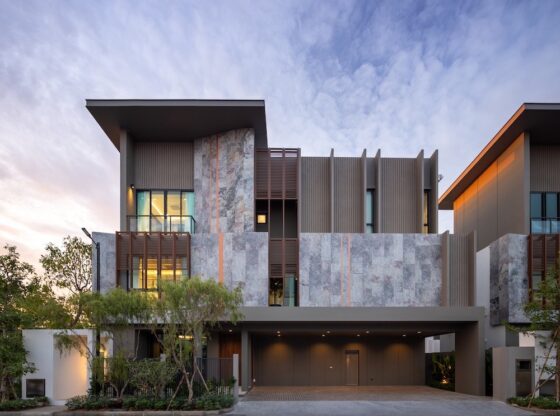![]()
Moderated by Jules Kay, the managing director of PropertyGuru Asia Property Awards and Events, the recent PropertyGuru Thailand Property Awards Virtual Media Roundtable 2021 gathered industry experts to discuss the prospects of Thailand’s real estate market.
The chairperson at JLL Thailand and chairperson of the PropertyGuru Thailand Property Awards judging panel, Suphin Mechuchep, was present to give an overview of this year’s programme as the biggest and most prestigious industry accolade recognising the kingdom’s finest real estate. She also talked about the current investment climate in Thailand given the challenges of COVID-19 and addressed some sector-specific opportunities that may arise as property markets recover from the pandemic.
Meanwhile, Kamolpat Swaengkit, the country manager at DDproperty, shared highlights from their Consumer Sentiment Survey. According to the report, seven out of 10 consumers plan to buy a property in the future, but with Thailand experiencing its biggest COVID wave so far, Thais are delaying their purchase to after two years. Despite increased property portal use and social media reliance, property seekers still prefer having at least one physical visit to a project before making decisions.
Another prominent figure who joined the roundtable is Paul Ashburn, the co-managing partner of HLB Thailand and the ASPAC leader for HLB Real Estate Group, the Official Supervisor of PropertyGuru Asia Property Awards. He provided insights on how COVID and the ageing population are influencing the property market, green real estate, and Thailand’s tax restructuring.
As Thailand experiences an increasingly ageing population, Ashburn suggests the government to come up with a plan to increase tax collections in the long-term to meet the needs of such population – funding social security, welfare, services, and infrastructure that allow for mobility and servicing of older people.
Thailand’s annual population growth has dropped significantly from a high of 3 percent in the 1960s to only 0.25 percent in 2020, according to the World Bank Group. Around 12 percent of its nearly 70 million population are 65 years old and older, with a life expectancy of 72.4 (males) and 78.9 (females), per the country’s Board of Investment official data.
“The government has been aware of this issue for a while now and decided a couple of years ago to undergo tax reform.” Some of the goals in the draft plan for tax restructuring for 2022–2026 include enhancing the country’s competitiveness to ensure sustainable economic growth, and promotion of the digital economy, by deploying technologies to upgrade the country’s tax management system.
To support the demand of the greying population and to encourage developers to build for their particular needs, the PropertyGuru Thailand Property Awards has recently introduced new categories, such as the Best Health and Wellness Development, and the Best Architectural Design (or Best Senior Living in previous years).
Ashburn also shared that the pandemic has accelerated the pace of change in certain areas, such as remote working and digitisation. Such changes have led 84 percent of leaders to agree on the difficulty of delivering the value of ‘human touch’.
“This comes up as an issue for selling real estate where you’re trying to establish trust between the seller and the buyer. Digital technologies like virtual reality and drones may offer this 360-degree property view, but still, nothing is like showing property in person,” said Ashburn.
Moreover, with social distancing policies increasing, companies may decide in the future to downsize space to account for remote working. Others may seek buildings with fewer offices but larger, more well-equipped collaboration spaces.
He added: “With the acceleration in remote working, we may see various real estate sectors like data centres and single-family homes increase in value, while retail and hospitality may decrease.”
Green initiatives and climate change continue to fuel innovation in the real estate arena, as 77 percent of global leaders see the recovery of the pandemic as an opportunity to make changes to their business. As a result, they’re in a better position to profit from the low-carbon economy of the future once they come out of the pandemic.
“Companies will increase digital capabilities and choosing alliances will be important in executing environmentally friendly strategies,” Ashburn concluded.
Source: www.asiapropertyawards.com












